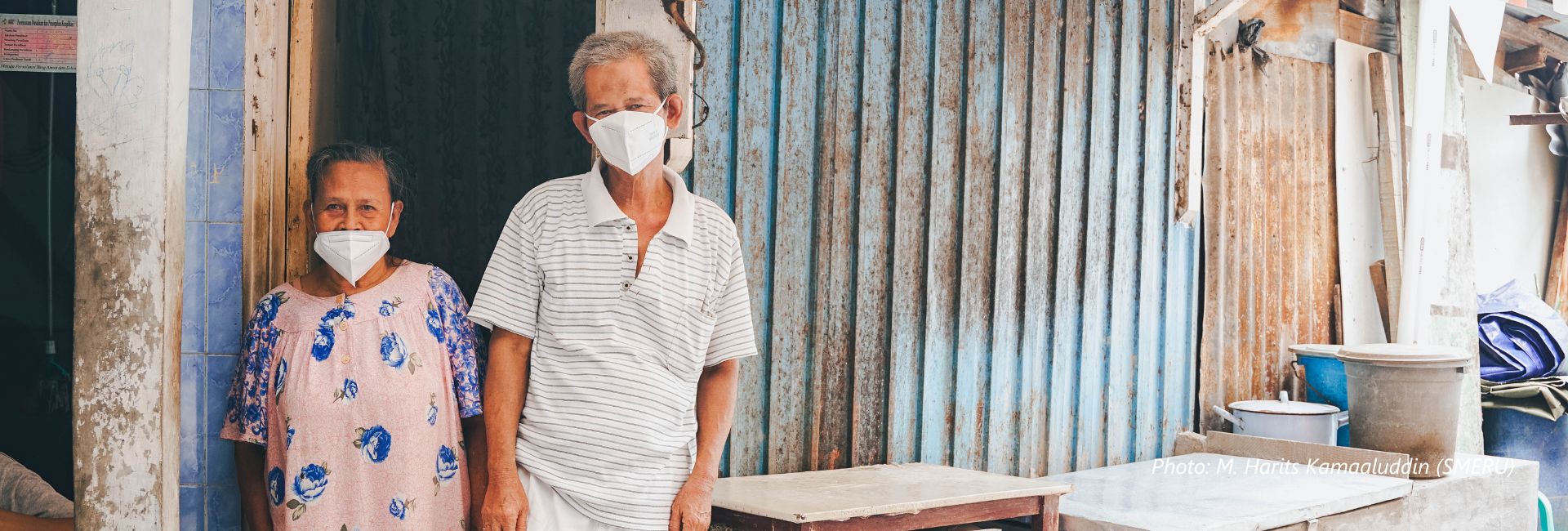Indonesia is gradually moving towards a country with an aging community. This study aims to measure the impacts of the Jakarta Elderly Card (KLJ) Program on the elderly welfare. It used a quantitative approach, through a survey to 1,916 elderly households in the bottom 40% of expenditure distribution in DKI Jakarta, and qualitative approach, through a life history analysis. The impacts were measured using the inverse probability weighting-regression adjustment (IPWRA) method. This study finds that KLJ (i) reduces the possibility for elderlies to receive money transfer from others (family, relatives, etc.) as their main source of income; (ii) increases the proportion of elderlies attending elderly integrated health service post (posyandu) and religious events; and (iii) increases their leisure time. Nevertheless, this study does not find the impacts of KLJ on the dietary habit for several foods. This study recommends that the KLJ Program be continued and developed, both in terms of its assistance amount and the coverage of its recipients.
Suggested Citation:
TNP2K and SMERU (2025) Analysis of Impact of Jakarta Elderly Card (KLJ) on The Basic Needs and Welfare of and Basic Services for The Elderly. Jakarta: Policy Assistance Team of Social Welfare, KEMENKO PM.




